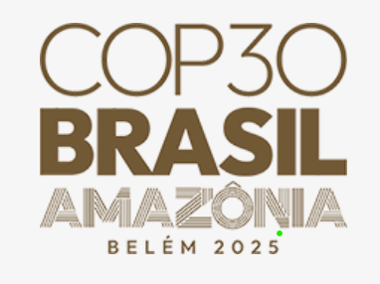Notre collègue Jean-Luc Chotte, est présent à Belèm pour la  Conférence ONU Climat -- COP 30 CCNUCC
Conférence ONU Climat -- COP 30 CCNUCC
Etant par ailleurs Président du Comité scientifique français sur la désertification (CSFD), il en décrit les enjeux ici : https://www.csf-desertification.org/de-belem-a-oulan-bator/
Voici quelques éléments ciblés qui font écho aux préoccupations scientifiques de notre UMR, et auxquels nous avons pu contribuer :
*Un papier de positionnement
Co-creating Synergies through Local Communities and Indigenous Peoples’ Action on Climate, Land and Food.
Accessible ici : https://drive.google.com/file/d/18fgthlefChh4sQU55Acfgm1ZVsc-n3I6/view?usp=drive_link
qui soutient un side event co-organisé (Cirad, IDOL, IRD) samedi 15 novembre
Libérer les synergies entre climat, biodiversité et alimentation grâce à des actions foncières communautaires
Pavillon UNFCCC, salle 6
Les agendas mondiaux appellent de plus en plus à des réponses intégrées aux défis du climat, de la biodiversité et de la sécurité alimentaire. Cependant, la mise en œuvre de cette intégration demeure une lacune majeure. Cet événement parallèle se concentrera sur les solutions foncières qui abordent le lien entre climat, biodiversité et sécurité alimentaire.
*Une publication FAO
Update on scientific findings on the interactions between agriculture, food systems and climate change
DOI: https://doi.org/10.4060/cd6901en
Qui sera présentée le Lundi 17 novembre 2025, durant un des Side-events organisés par la FAO,
Transforming agrifood systems through climate science
Pavillon Science for Climate action
Agrifood systems are at the heart of climate change challenges and solutions. This side event will explore how climate science is informing the transformation of agrifood systems to be more resilient, sustainable, and inclusive. Drawing on insights from the IPCC’s cycles and FAO’s latest research, the session will highlight the critical role of science in shaping climate policy and practice across adaptation, mitigation, and food security. The event will feature updates on how agriculture is addressed across IPCC Working Groups and the Task Force on Inventory. FAO, with Partners, will present the annual release of greenhouse gas (GHG) emissions data for agriculture, launch the 2025 Working Paper synthesizing emerging evidence on climate impacts and agrifood system responses, and share new insights on crop suitability under evolving climate scenarios. It will also highlight FAO’s analysis of National Adaptation Plans and NDCs, emphasizing the importance of science and data in strengthening climate-related agricultural policies. Bringing together scientists, IPCC authors, UNFCCC negotiators, policy makers and country representatives, the event aims to foster dialogue on how climate science can support agrifood system transformation.
* La co-organisation (4P1000-IRD) d’un événement Pavillon France
Sustainable land use management for synergizing biodiversity-water-sustainable food systems-health-climate: a focus on drylands
La gestion durable des sols pour opérationnaliser les synergies biodiversité-eau-alimentation durable-santé-climat : le cas des zones sèches.
Le mercredi 19 novembre de 16h à 17h30
A noter également une table ronde co-organisée par le Consortium international de recherche sur le carbone du sol (IRC) et l’Initiative internationale 4P1000 à l’Agrizone le 18 novembre à 14h Carbone du sol et santé des sols pour l’avenir de l’agriculture.
Bonne COP30 !!






